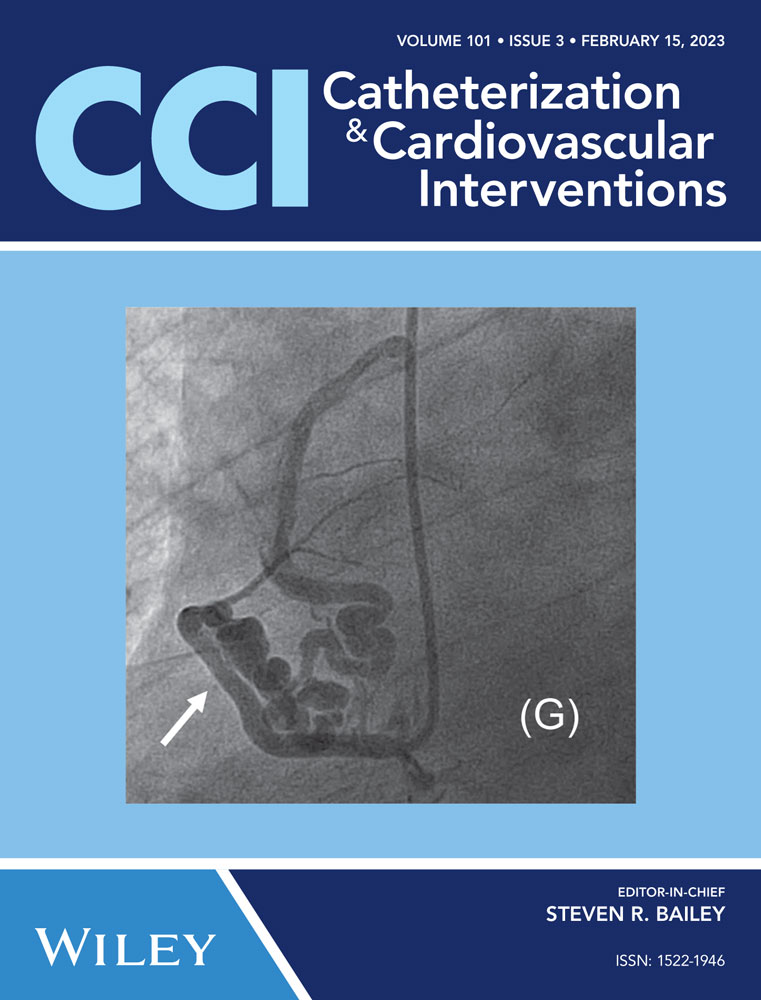Validation of the new PROGRESS-CTO complication risk scores in the OPEN-CTO registry
Abstract
Background
Risk stratification before chronic total occlusion (CTO) percutaneous coronary intervention (PCI) is important to inform procedural planning as well as patients and their families. We sought to externally validate the PROGRESS-CTO complication risk scores in the OPEN-CTO registry.
Methods
OPEN-CTO is a prospective registry of 1000 consecutive CTO PCIs performed at 12 experienced US centers using the hybrid algorithm. Endpoints of interest were in-hospital all-cause mortality, need for pericardiocentesis, acute myocardial infarction (MI), and major adverse cardiovascular events (MACE) (a composite of all-cause mortality, stroke, periprocedural MI, urgent repeat revascularization, and tamponade requiring pericardiocentesis). Model discrimination was assessed with the area under the curve (AUC) method, and calibration with the observed-versus-predicted probability method.
Results
Mean age was 65.4 ± 10.3 year, and 36.5% of patients had prior coronary artery bypass graft. Overall, 41 patients (4.1%) suffered MACE, 9 (0.9%) mortality, 26 (2.6%) acute MI, and 11 (1.1%) required pericardiocentesis. Technical success was achieved in 86.3%. Patients who experienced MACE had higher anatomic complexity, and more often required antegrade dissection/reentry and the retrograde approach. Increasing PROGRESS-CTO MACE scores were associated with increasing MACE rates: 0.5% (score 0−1), 2.4% (score 2), 3.7% (score 3), 4.5% (score 4), 7.8% (score 5), 13.0% (score 6−7). The AUC were as follows: MACE 0.72 (95% confidence interval [CI]: 0.66−0.78), mortality 0.79 (95% CI: 0.66−0.95), pericardiocentesis 0.71 (95% CI: 0.60−0.82), and acute MI 0.57 (95% CI: 0.49−0.66). Calibration was adequate for MACE and mortality, while the models underestimated the risk of pericardiocentesis and acute MI.
Conclusions
In a large external cohort of patients treated with the hybrid algorithm by experienced CTO operators, the PROGRESS-CTO MACE, mortality, and pericardiocentesis risk scores showed good discrimination, while the acute MI score had inferior performance.
Open Research
DATA AVAILABILITY STATEMENT
Research data are not shared.




